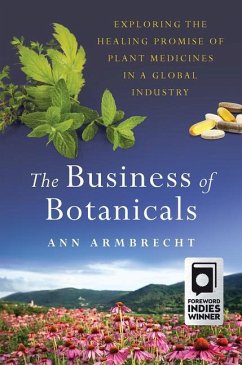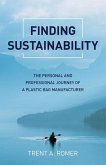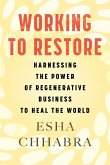"Using herbs to heal the body is an ancient practice, but in the twenty-first century, herbal medicine is also a worldwide industry-in 2019, consumers spent more than $9 billion on herbal supplements. In The Business of Botanicals, Ann Armbrecht describes her journeys to herb collection sites, farms, and factories in North America, Europe, and India to tell the stories of the people and places behind the bottles of herbal products on grocery store shelves. Armbrecht wanted to explore complicated questions about whether the intangible potency of medicinal herbs and the values of respect for the earth and care for people and plants can be preserved when production expands to the industrial scale. In her travels, she observed examples of disheartening disinterest in product quality and worker treatment, but she also discovered dedicated individuals working in herbal businesses committed to caring for people, plants, and the environment. For example, Pukka Herbs is attempting to protect rare great hornbills in India by creating a market for the fruit of bibhitaki trees, where the birds nest. And Runo, a producer company in Poland, has embraced the rigorous standards of the FairWild Foundation's certification program, which protects meadow habitats while also providing better wages for wild collectors. Companies such as these aim to inspire the entire industry to take action to make the world a better place. Though no business is perfect, maintaining relationships with producer companies, farmers, and collectors is essential to high-quality products and appropriate care for people and plants, Armbrecht proposes. Valuing relationship makes it possible for a transaction to be about more than profit. The Business of Botanicals is the first resource of its kind for readers who wish to take the extra step in curating ethically sourced products. The author also calls on readers to acknowledge that such conscious capitalism is only a beginning step along the challenging journey of addressing the social and ecological consequences of our ways of living"--
Hinweis: Dieser Artikel kann nur an eine deutsche Lieferadresse ausgeliefert werden.
Hinweis: Dieser Artikel kann nur an eine deutsche Lieferadresse ausgeliefert werden.








